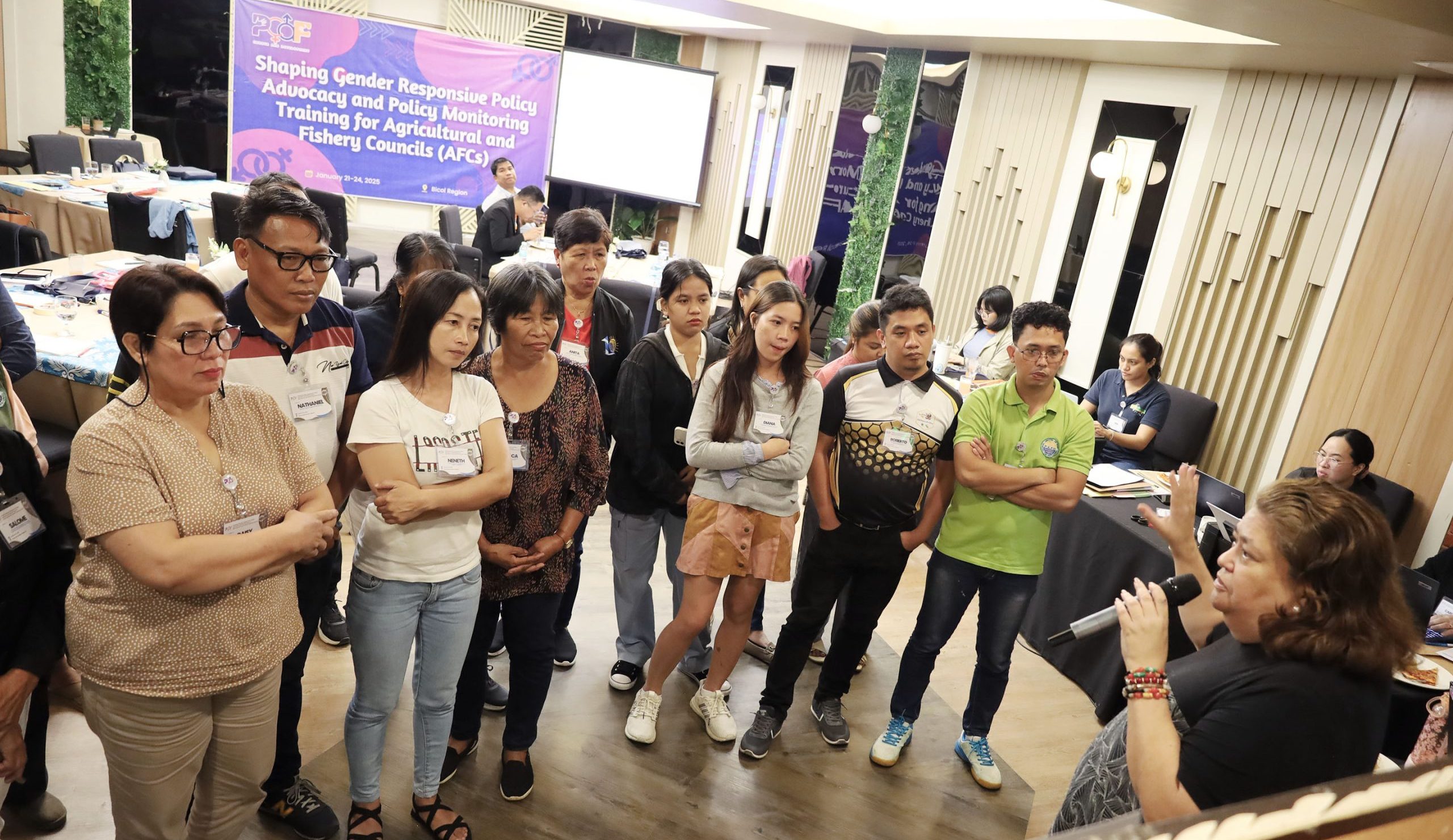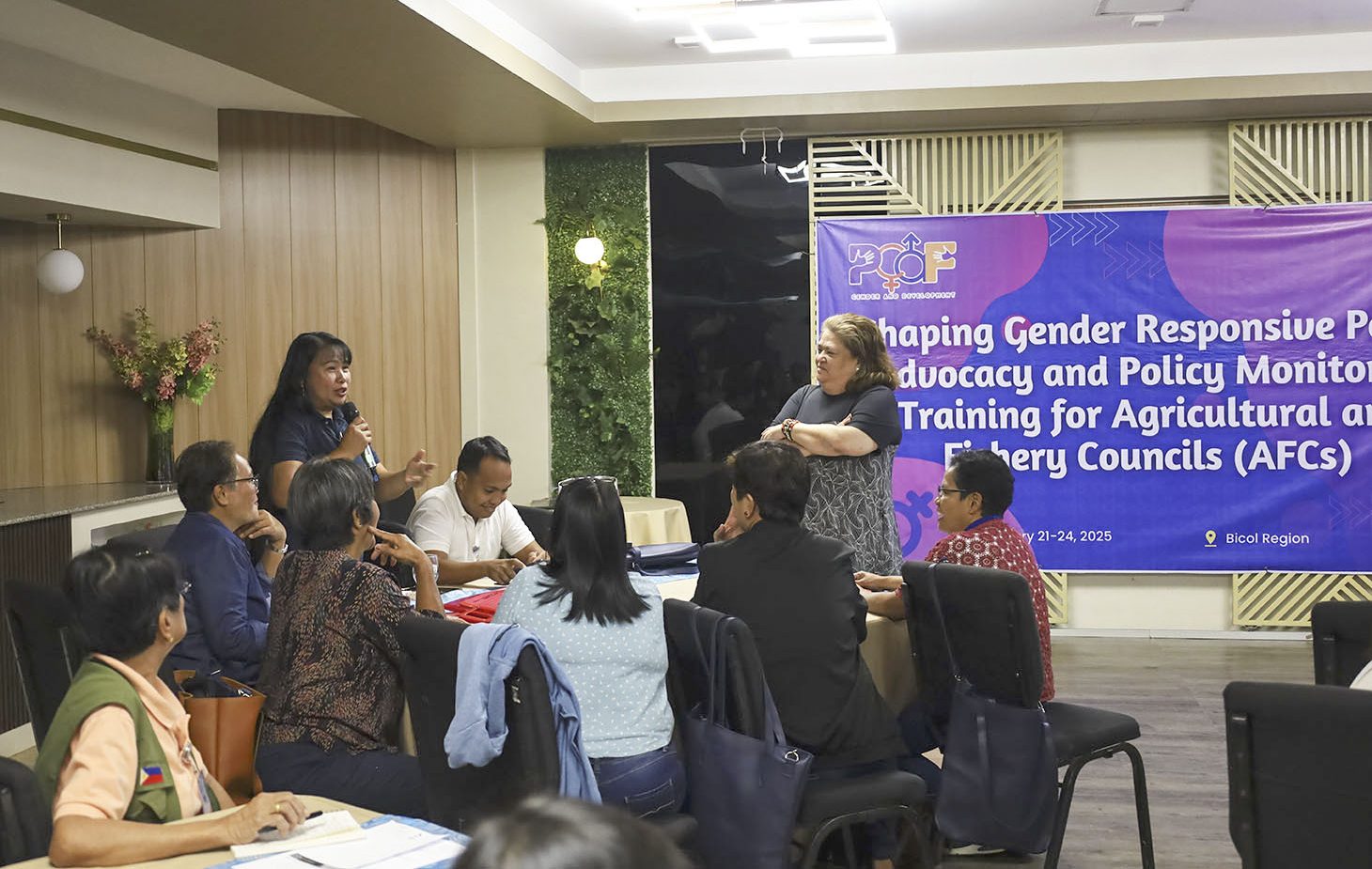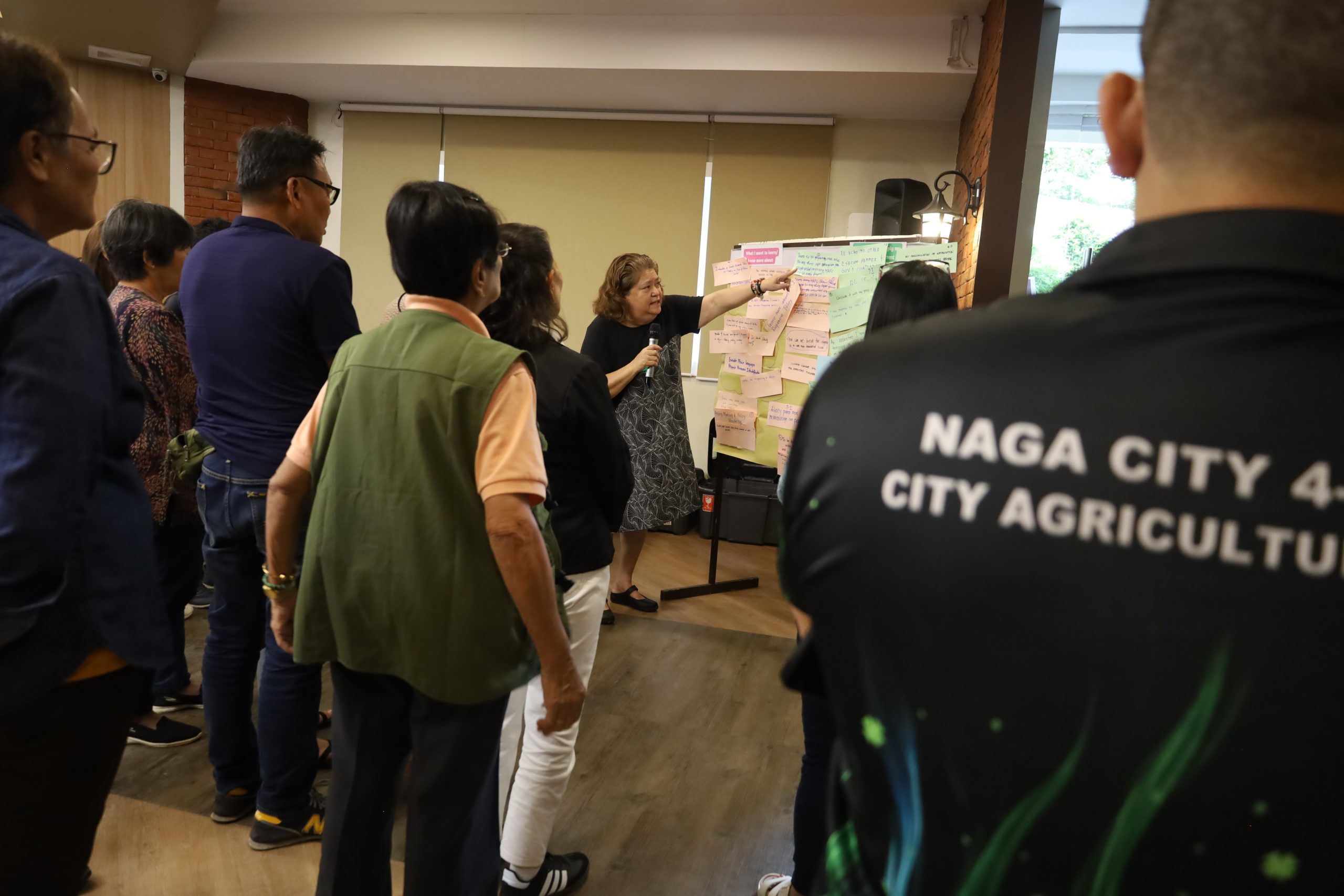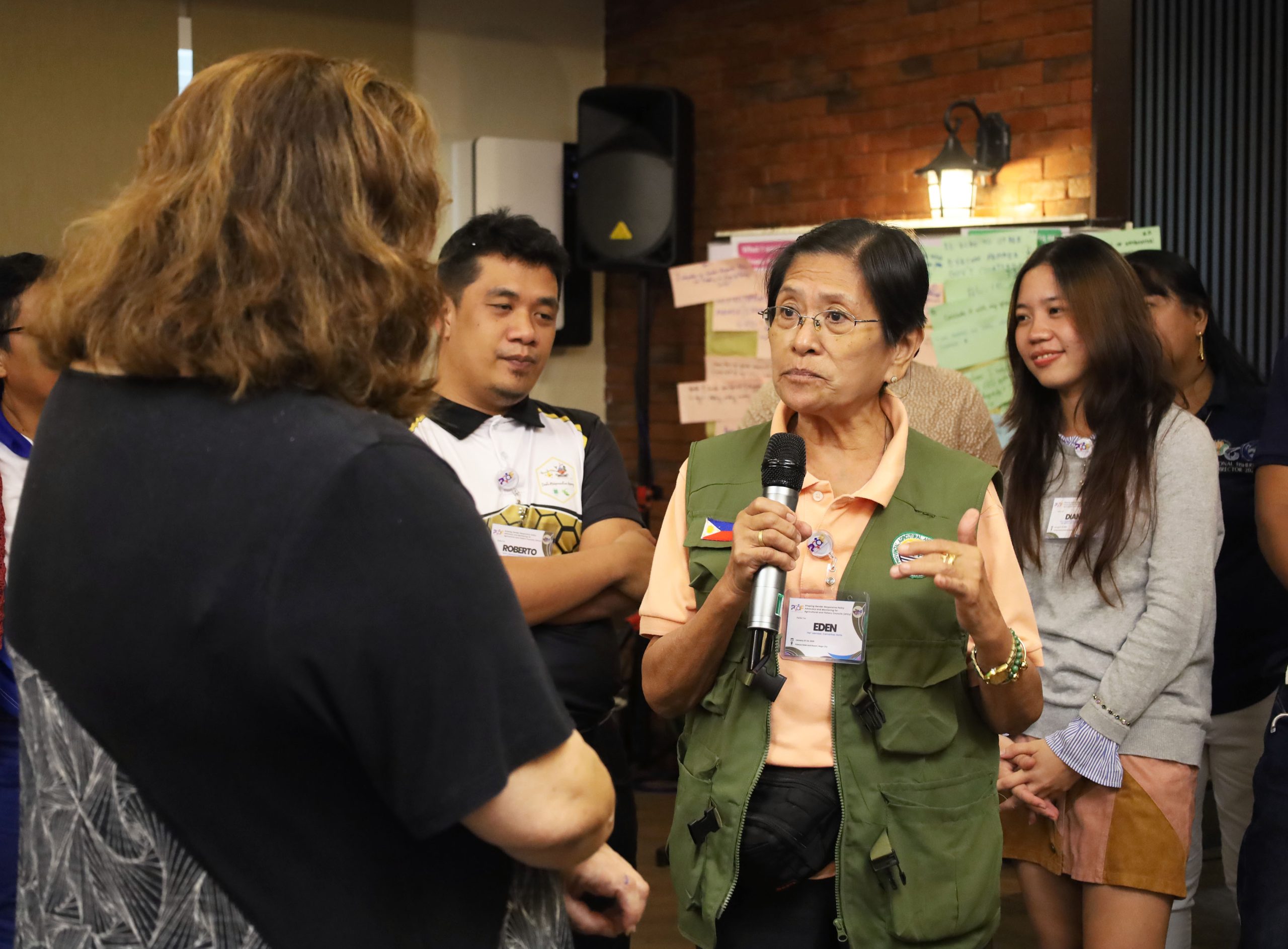
“Lakas kasama ang iba, lakas para magbago, at lakas ng loob,” said gender equity, stakeholder, and community engagement specialist Carmen “Mench” Auste.
In the context of gender equity, equality, and social inclusion, a total of 35 Agricultural and Fishery Council (AFC) officers, members, and secretariat-coordinators of the Bicol Region gathered to hone their skills in creating gender-responsive and socially inclusive policies during the Shaping Gender Responsive Policy Advocacy and Monitoring (GRPAM) training on January 22 to 23, 2025 in Naga City in Bicol Region.

Facilitated by the Philippine Council for Agriculture and Fisheries (PCAF)- Capacity Development Section, in coordination with the PCAF-Gender and Development Focal Point System (GAD-FPS), the two-day training brought Auste to discuss integrating gender perspectives into policy development, advocacy, and monitoring.
The participants explored key gender concepts, gender mainstreaming, and the gender continuum, moving from gender-blind approaches to gender-transformative ones.
According to PubMed Central, a digital archive of peer-reviewed biomedical and life sciences literature, gender continuum is an umbrella concept, accounting for components beyond how a person identifies, how one conforms to gender roles, expresses gender outwardly, and anatomical or biological characteristics one possesses.

The Bicol Region GRPAM is part of PCAF GAD-FPS’ training program designed for new members and recently elected officers of the AFC to enhance their skills in crafting policy recommendations that take gender perspective into account.
The participants examined gender-related challenges faced by different genders in the sector and learned how to design gender-responsive monitoring systems. They also engaged in discussions on policy advocacy, exploring strategies to inspire decision-makers to foster meaningful change.

Auste pointed out the importance of AFCs and why the Councils need support in terms of gender inclusivity. She highlighted this concept in the context of “Lakas kasama ang iba” or working together and creating a unified and collective action along with other community-based or rural-based organizations.
She also discussed the “Lakas para magbago” concept. This encapsulated the support needed and enabling policy environment through the crafting of positive ordinances like administrative orders, guidelines, and even laws from the barangay, municipal, provincial, regional, up to the national level.

According to Auste, these kinds of issuances and written documents signify support from the decision-makers to promote gender equity, equality, and social inclusion in their respective areas.
“Pagpapahalaga at tiwala sa sarili or confidence. Kahit anong gawin nating training in the context of skill sets, kung walang kompiyansa at tiwala, wala pa ring mangyayari. Sa mga leadership trainings, dapat may confidence building dyan.
Even if we train them on how be a good leader, kung wala silang tiwala sa (sarili), dahil ang script ay pangsekretarya lang ang mga babae, wala ring mangyayari sa mga natutunan nya,” said Auste, referring to the “Lakas ng loob” which emphasizes the belief in one’s competence and abilities and valuing one’s importance and self worth.
The training utilized interactive methodologies, including group discussions, games, and analysis of existing policy resolutions, ensuring active participation and knowledge retention. | Jezebel Campaniel











